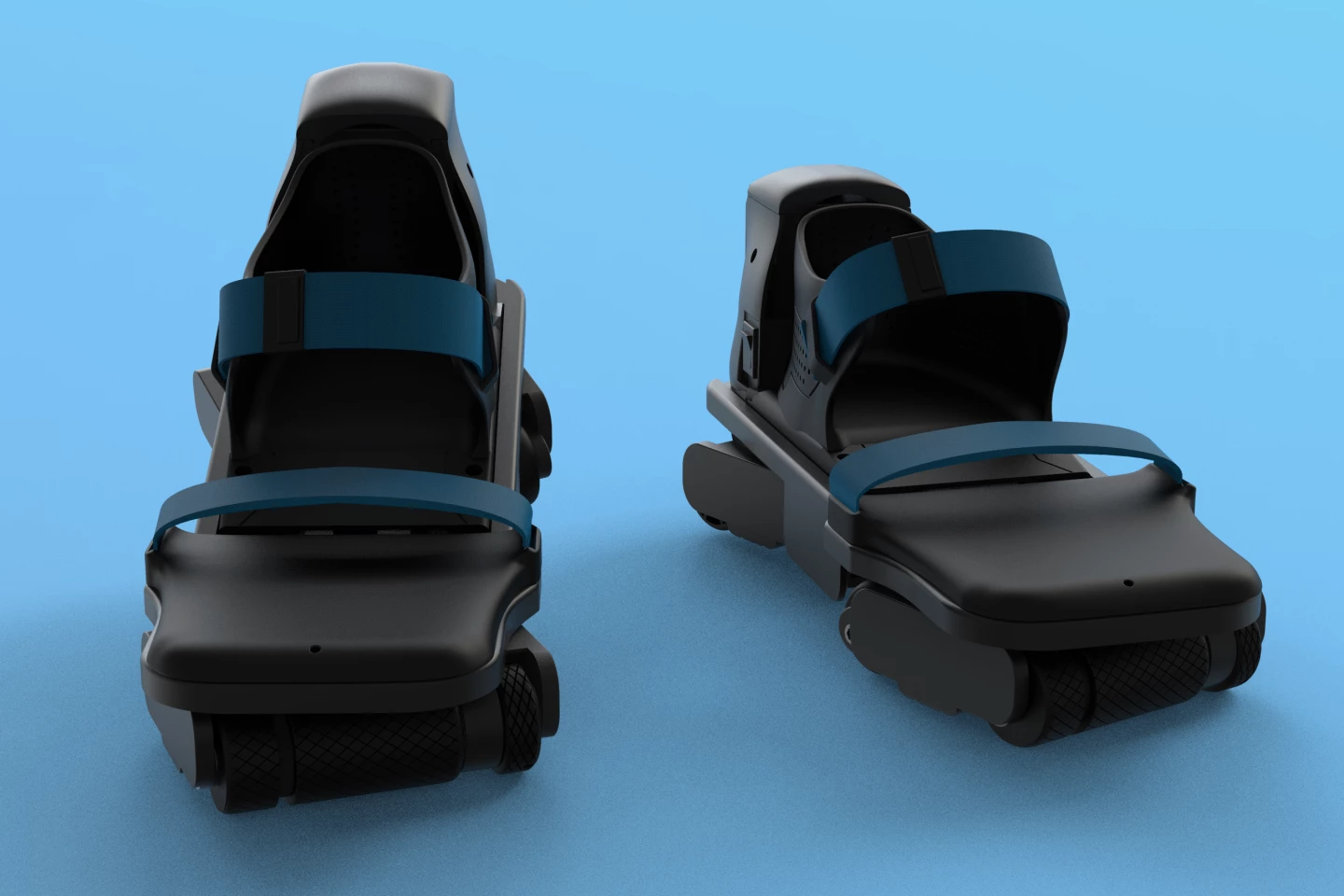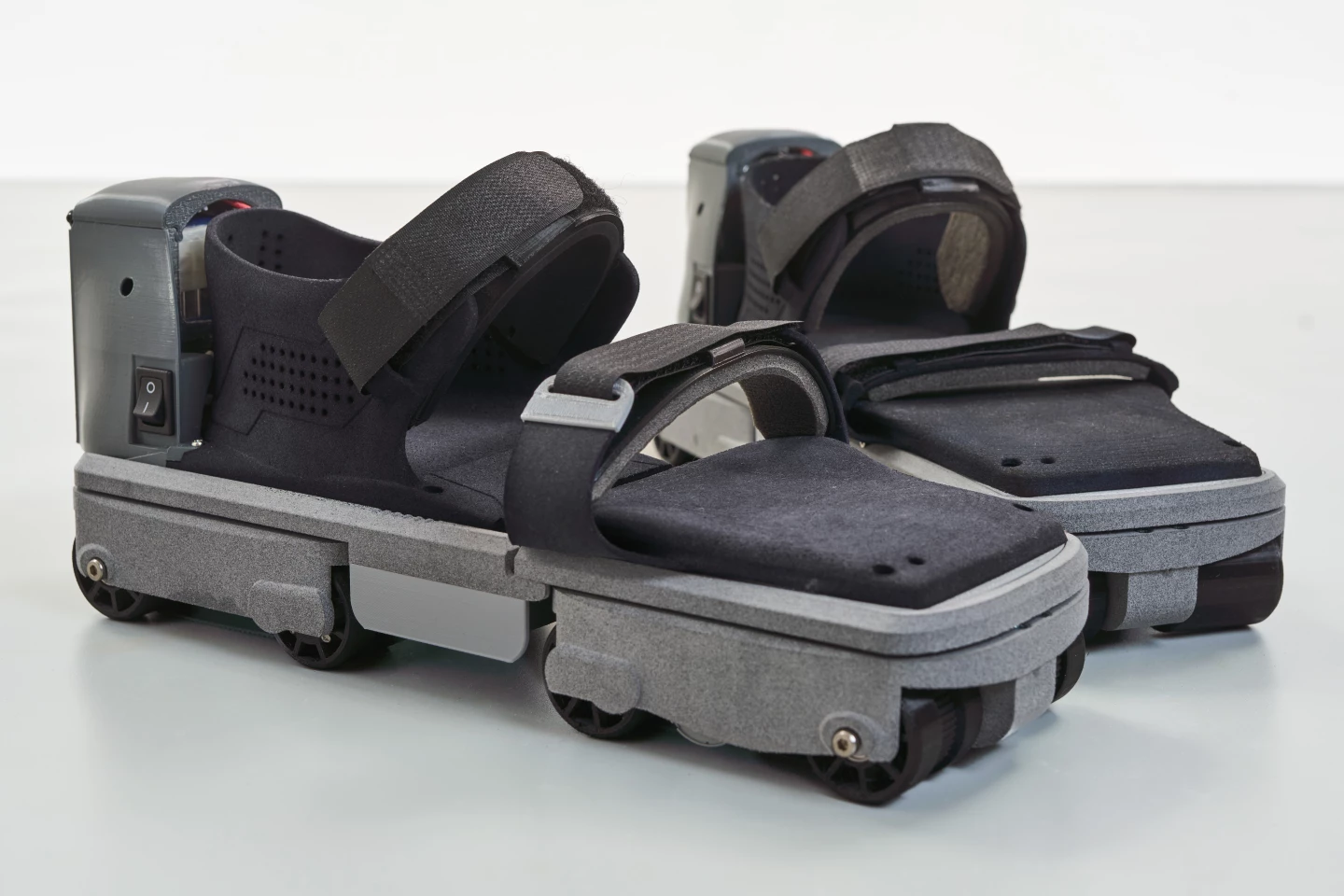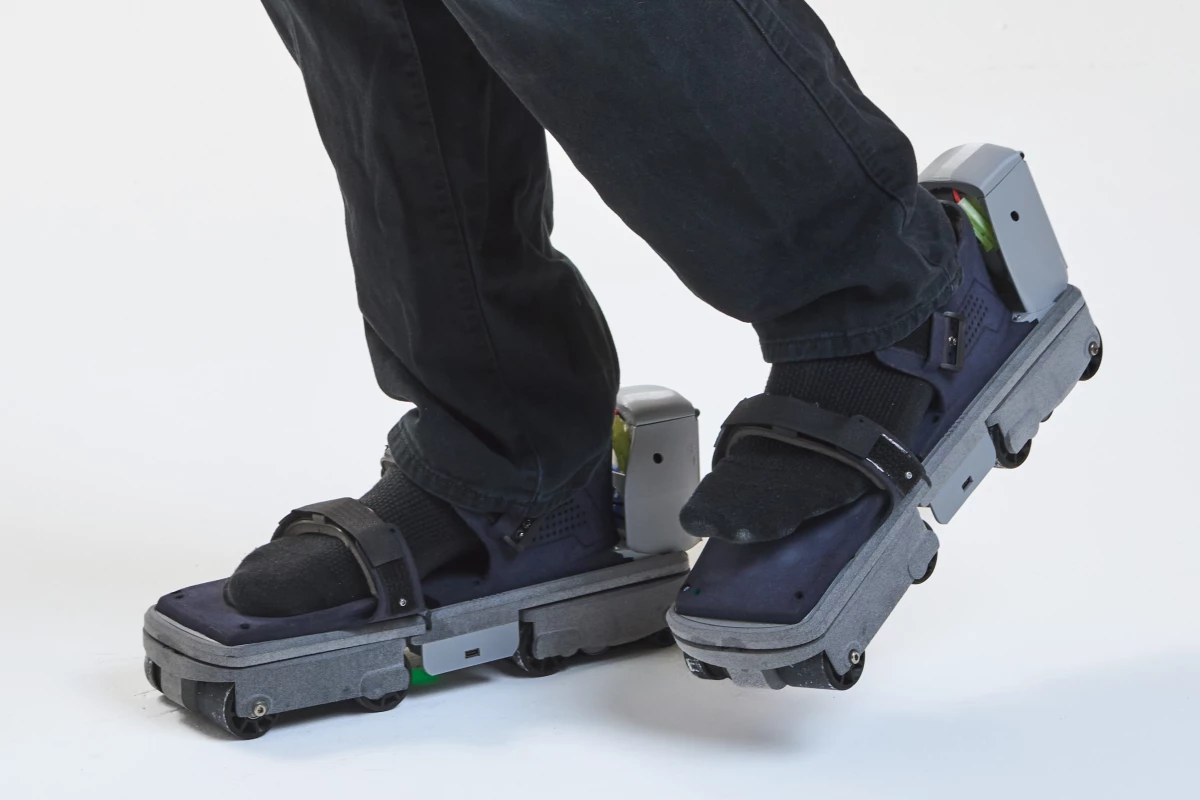Shoes with motorized wheels could revolutionize the manner in which gamers walk through VR worlds. Currently being developed by UK/US startup Freeaim, the clever kicks are essentially little wearable treadmills.
While it's easy enough to replicate users' real-world head and arm movements in VR environments, walking is a bit trickier. After all, if a gamer is walking the length of a virtual city block within a game, they can't very well be covering that same distance in real life … or at least, not without running into things.
One solution to this problem involves using what are known as omnidirectional treadmills. These tend to take the form of slippery round(ish) platforms that slope in toward the center like a bowl. As the user walks on that platform – facing in any direction – their feet continuously slip in to the middle, keeping them in place.
According to Freeaim, however, some people describe walking on such platforms as feeling more like skating, or like pushing awkwardly against the inside of a dish. Additionally, omnidirectional treadmills are relatively large and expensive, plus they require the user to be supported by a harness or wrap-around railing.
By contrast, Freeaim VR Shoes are more like electric roller skates.

Their wearer simply stands on a square area of hard floor measuring at least 2 by 2 meters (6.6 ft). As that person steps forward with one leg, omnidirectional wheel modules on the other leg's shoe move that leg back, keeping the user from actually making any forward progress across the floor. And if the user does nonetheless start moving too far to one edge of their real-world walking area, the shoes will gradually return them to the center.
In the current incarnation of the system, it's additionally possible to turn while walking (or jogging), to turn around while standing on one spot, and to take one or two sidesteps to the left or right. Down the road, it should likewise be possible to walk backward, and to sidestep indefinitely – the latter will be managed by having the wheel modules pivot to face perpendicular to the rest of each shoe.

Freeaim VR Shoes are presently compatible with any VR headset supported by SteamVR, and will work with most PC-based VR games that have walkable environments.
Thanks to recent funding, a developer version of the shoes is now available to corporate clients for a price of US$4,999 a pair. Freeaim co-founder Alex Evans tells us that a consumer model should be released next year at a price of about $1,000. CEO Ashley Foxcroft is the other co-founder, having launched the company in 2021.
The shoes are demonstrated in the video below.
Source: Freeaim






